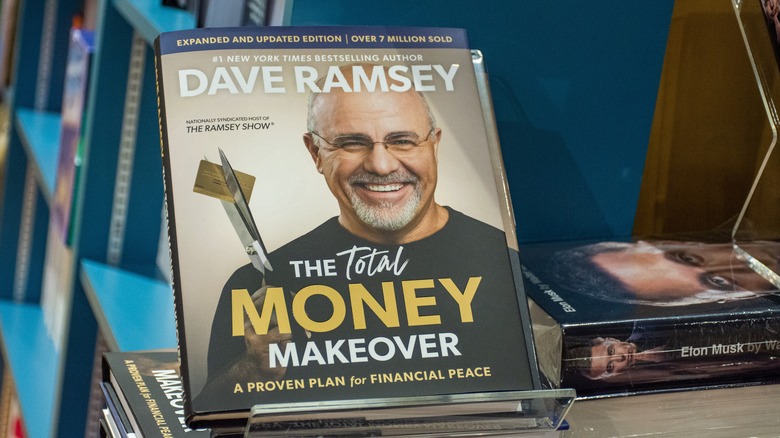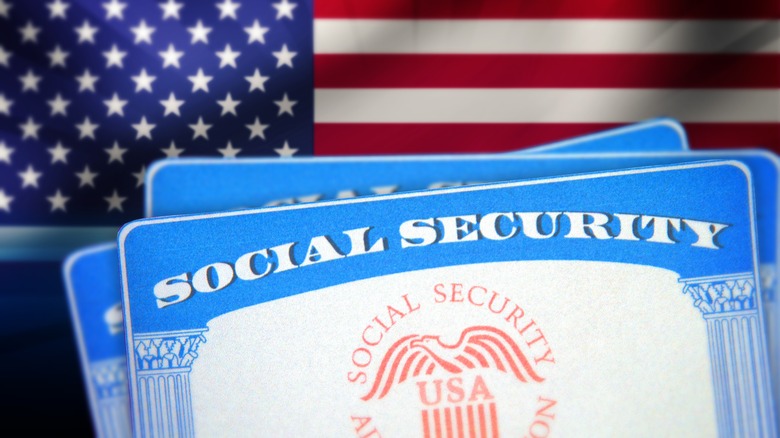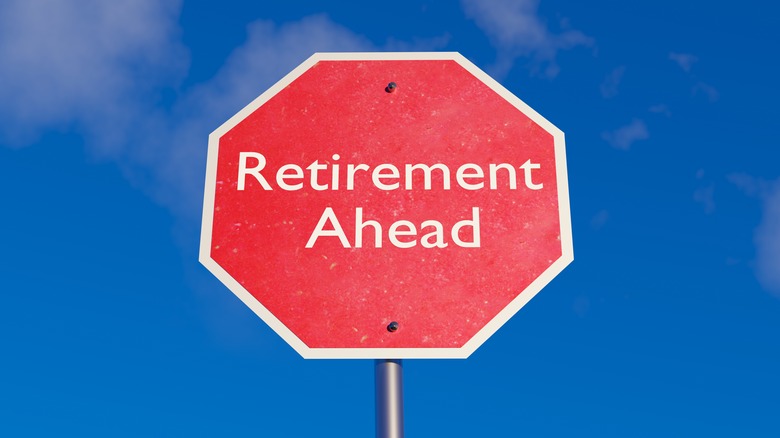Dave Ramsey Has One Word For The Future Of Social Security (And It's Not Good)
The Social Security Administration (SSA) estimates that approximately 69 million Americans will receive a monthly payment from the organization in 2025. That translates into nearly 90% of all senior citizens age 65 and older receiving social security checks that represent 31% that group's total income in retirement. With social security serving such an important role for elderly and disabled U.S. citizens, the last thing anybody wants to hear is that the program is "unpredictable." Yet, that's exactly the expression that personal finance guru Dave Ramsey recently used to describe social security.
For those unfamiliar with Ramsey, the bestselling author and radio host turned an early failure in the real estate industry into a fierce advocacy for financial literacy. Although some of Ramsey's advice can border on the extreme — like never using credit cards, for example — his intentions are nonetheless aimed in the right direction. And by the way, responsible use of credit cards can unlock a plethora of little-known perks.
On the author's eponymous website, an article explains that "The future of Social Security is unpredictable to say the least." Unlike some of Ramsey's controversial advice, many workers and financial experts will agree that the solvency of the Social Security system over the coming decades is a major concern largely due to these looming threats.
Less workers will be funding social security
To begin, it helps to understand that Social Security is fully funded throughout the year 2034. That said, some money will still be available post-2034, but not enough to pay 100% of the promised benefits. If no further actions are taken between now and 2034, Social Security will then be able to pay out about 80% of the benefits that retirees will be expecting. Currently, about 2.7 workers contribute to the cost of covering one retiree's social security benefits. Over the next 10 years, that ratio is expected to drop to 2.4 workers contributing toward each recipient's monthly check.
The reason for the drop in the number of workers paying into the system is because additional members of the baby boomer generation, born between 1946 and 1964, will increasingly retire. That's a double whammy because not only will there be fewer workers to contribute toward Social Security, but vastly more retirees will be collecting.
According to the SSA, "The number of Americans 65 and older will increase from about 61 million in 2023 to about 77 million by 2035." Plus, Americans are living — and collecting social security payments — for longer periods of time. "In 1940, the life expectancy of a 65-year-old was almost 14 years; today, it is over 20 years," says the SSA.
Plan to provide for yourself
So what can you do to be proactive about dwindling funds and an unpredictable future for Social Security benefits? Start by assuming the worst and not relying on the government to fix the problem in the coming years. If your employer offers a 401(k) plan, Ramsey advises to begin investing as soon as possible. Owing to new government regulations, this will be easier than ever since all new employees will be auto-enrolled in such retirement schemes. And if your employer matches your 401(k) contributions up to a certain percentage, that's definitely something you'll want to take advantage of. It's literally free money.
A 401(k) type of retirement account is company sponsored, but anybody with earned income (or their spouse), like freelance or 1099 workers, can open an individual retirement account (IRA). Contributions to an IRA are made directly from your bank account and are tax deductible, provided that the proper criteria is met. As well, both the 401(k) and IRA are available in Roth versions, which Ramsey prefers.
Contributions to Roth retirement accounts are taxed, which might seem like a bad deal now. However, withdrawals from such accounts in retirement are tax-free. That can be a boon if the account grows substantially over the years, as it should. Finally, if you've not been investing enough for retirement and fear an unpredictable social security system, know that Secure Act 2.0 allows for larger catch-up contributions for aging workers.


